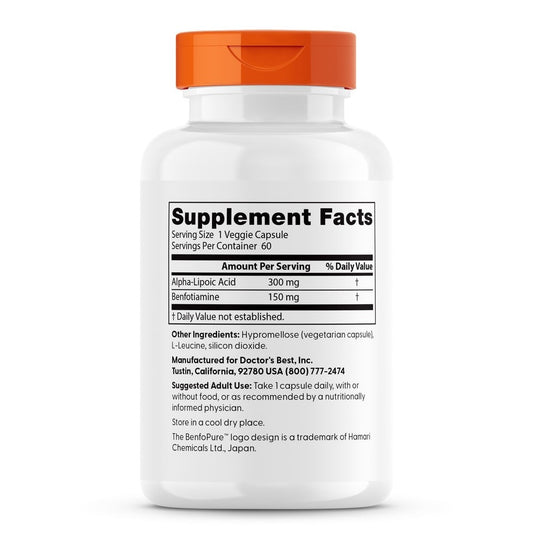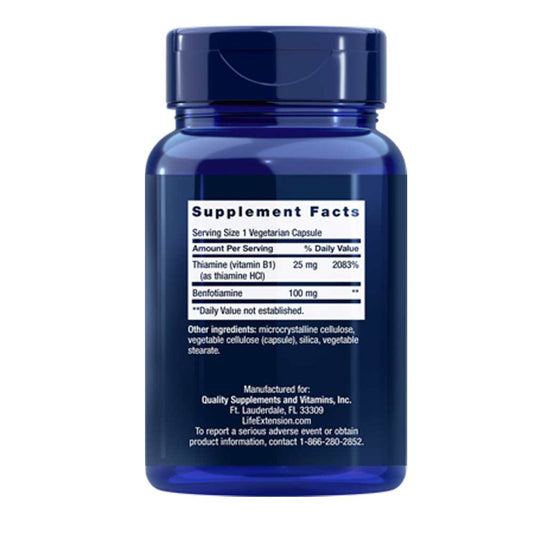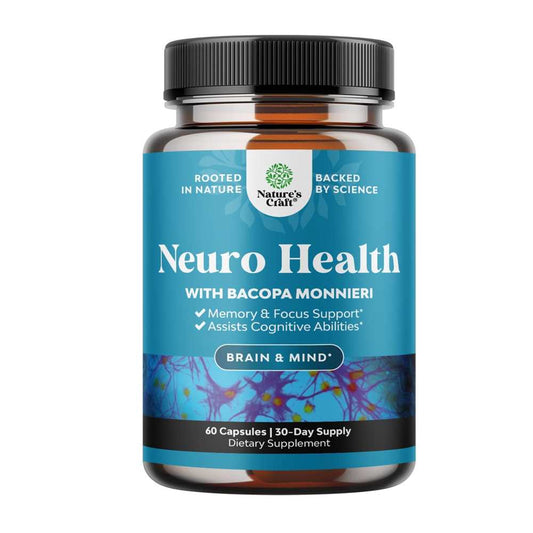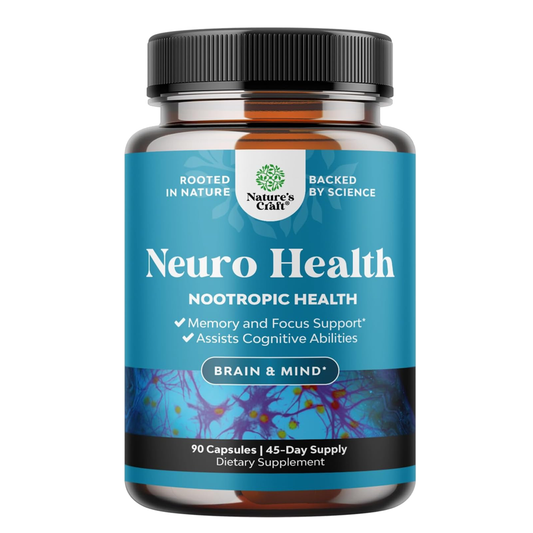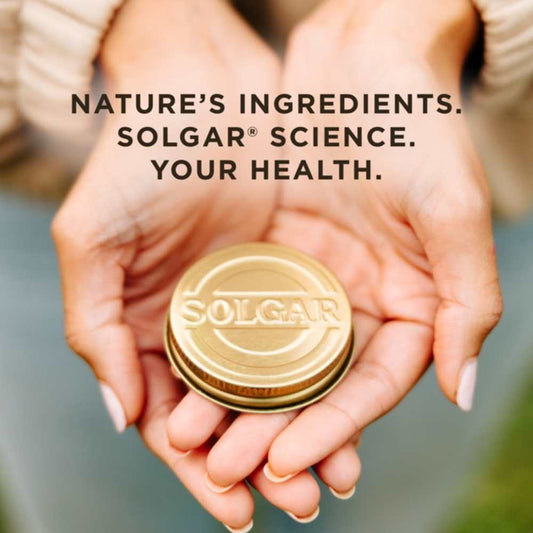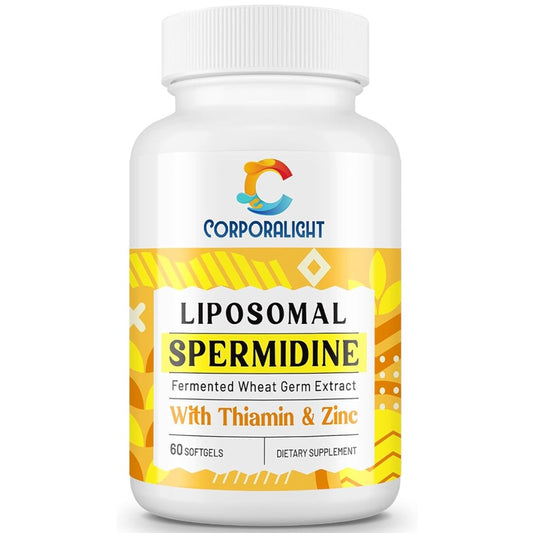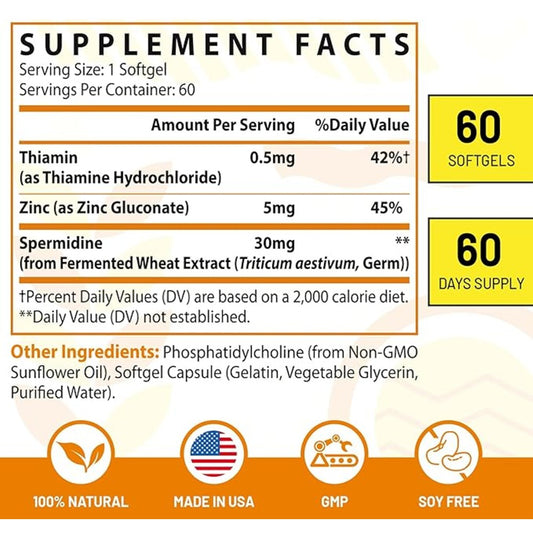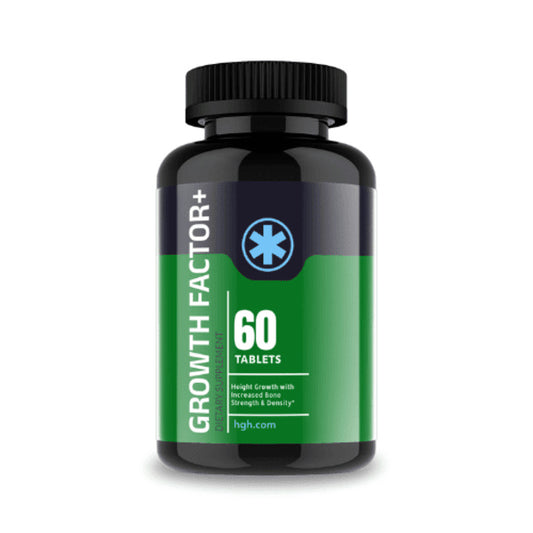Collection: THIAMIN
Thiamine (Vitamin B1) Overview:
Thiamine, also known as Vitamin B1, is a water-soluble vitamin that plays a critical role in energy metabolism and cell function. It is essential for the body's ability to use carbohydrates for energy and helps maintain healthy nerve, muscle, and heart function. Thiamine is naturally found in foods such as whole grains, meat, beans, nuts, and yeast. It is often included in vitamin B complex supplements.
Uses & Effectiveness: Effective for thiamine deficiency: Taking thiamine supplements can prevent and treat thiamine deficiency. Wernicke-Korsakoff Syndrome (WKS): This brain disorder, which is caused by low thiamine levels, is commonly associated with alcohol use disorder. IV thiamine is used to reduce the risk and symptoms of WKS. Possibly Effective for menstrual cramps (dysmenorrhea): Oral thiamine supplementation may reduce menstrual pain in teenagers and young females.
Sources: Thiamine is naturally present in various foods, including meat (pork, fish), nuts and seeds, legumes (beans, lentils, chickpeas), whole grains (brown rice, oats, barley), and fortified foods (breakfast cereals, bread).
Benefits: Energy Production: Thiamine plays a crucial role in converting carbohydrates into energy. Nerve Function: It helps in maintaining the health of nerve tissues. Heart and Muscle Health: Thiamine supports proper heart function and helps maintain muscle strength.
Deficiency Symptoms: Fatigue, nerve damage (nerve pain or weakness), heart problems, poor memory, and concentration.
Thiamine Supplements: Thiamine comes in various forms such as thiamine tablets, B1 supplements, benfotiamine (a fat-soluble form), and lipothiamine (for better absorption). Popular brands such as Nature Made, Thorne, Pure Encapsulations, and Solaray offer thiamine in various dosages such as 50mg, 100mg, and 500mg. Benfotiamine supplements are available for enhanced bioavailability and are used to support nerve health.
FAQ: Can thiamine help with anxiety? While there is some evidence suggesting it might help manage anxiety, further research is needed. Is thiamine good for heart health? Thiamine supports heart function by helping convert carbohydrates into energy, which is vital for heart health.
-
Doctor's Best Benfotiamine + Alpha-Lipoic Acid 150mg, Science-Based Nutrition™, Vegan Capsules, Supports Healthy Glucose Metabolism, 60 Veggie Caps
Regular price Rs.4,340.00 PKRRegular priceUnit price / perRs.5,000.00 PKRSale price Rs.4,340.00 PKRSale -
Life Extension Benfotiamine with Thiamine 100 Mg – 120 Vegetarian Capsules
Regular price Rs.6,230.00 PKRRegular priceUnit price / perRs.6,670.00 PKRSale price Rs.6,230.00 PKRSale -
Nature's Craft Neuro Health – Memory & Focus Nootropic, 90 Capsules (45-Day Supply)
Regular price From Rs.3,400.00 PKRRegular priceUnit price / perRs.6,780.00 PKRSale price From Rs.3,400.00 PKRSale -
Solgar Vitamin B1 (thiamin) 500 Mg 100 Tablets
Regular price Rs.5,560.00 PKRRegular priceUnit price / perRs.5,900.00 PKRSale price Rs.5,560.00 PKRSale -
Solgar Vitamin B1 (thiamin) 100 Mg 100 Vegetable Capsules
Regular price Rs.5,560.00 PKRRegular priceUnit price / perRs.5,980.00 PKRSale price Rs.5,560.00 PKRSale -
Corporalight Liposomal Spermidine Softgels – Premium Wheat Germ & Zinc Formula (60 Count)
Regular price Rs.3,600.00 PKRRegular priceUnit price / perRs.3,999.00 PKRSale price Rs.3,600.00 PKRSale -
BestVite Benfotiamine – Lipid-Soluble Thiamine – 300mg – 60 Vegetarian Capsules
Regular price Rs.3,450.00 PKRRegular priceUnit price / perRs.3,890.00 PKRSale price Rs.3,450.00 PKRSale -
Growth Factor+ Advanced Formula – 60 Tablets
Regular price Rs.3,699.00 PKRRegular priceUnit price / perRs.4,000.00 PKRSale price Rs.3,699.00 PKRSale
Couldn't Find Your Answer?
If you couldn't find the answer you're looking for, our team is here to assist you. Feel free to reach out, and we'll be happy to help!


